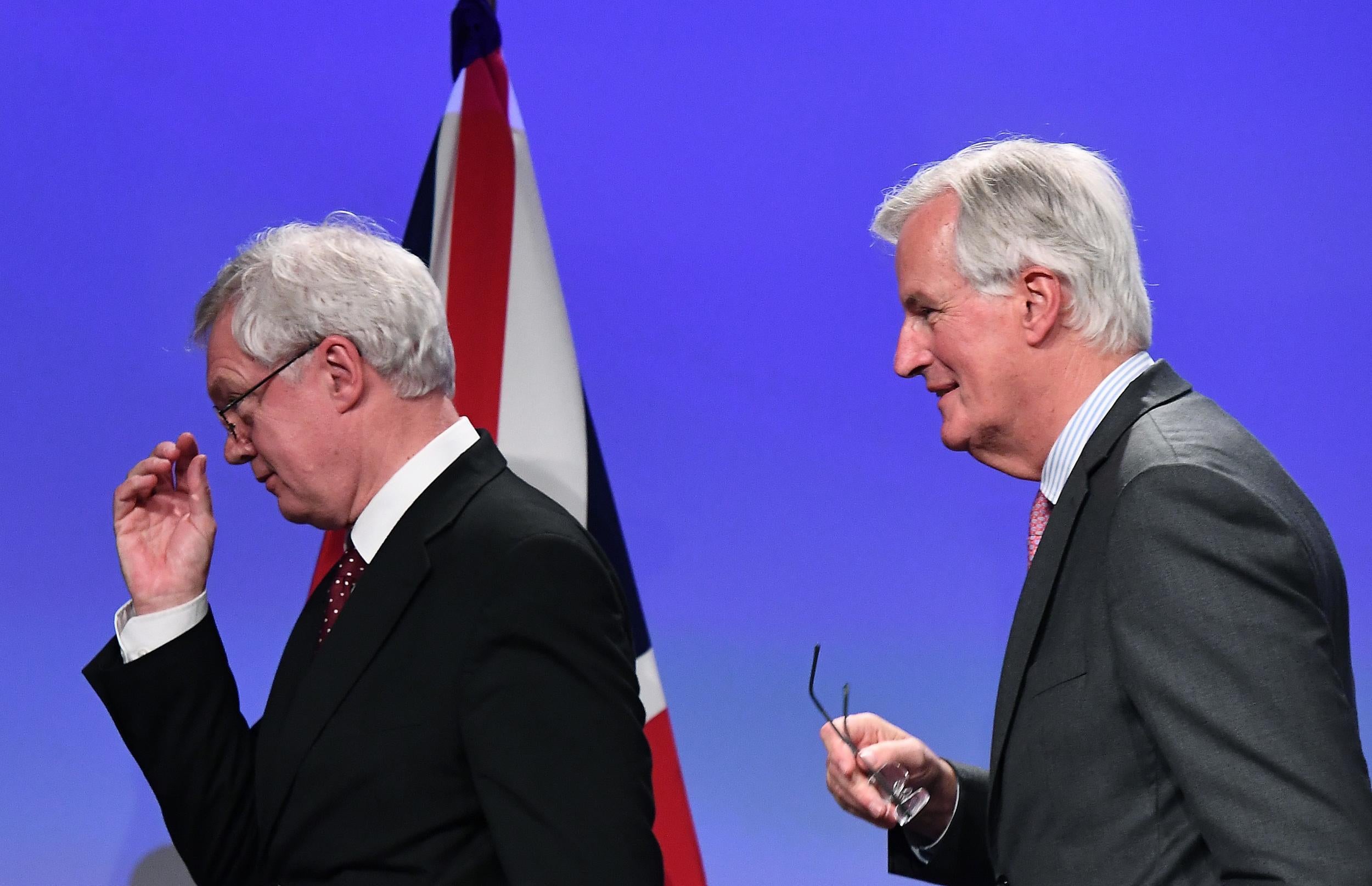There are vital stumbling blocks preventing any progress being made on Brexit
Michel Barnier has called once again – following orders from the EU 27 – that the European Court of Justice must be given an ‘indispensable’ role in protecting the rights of EU citizens living in Britain

It is sometimes alleged that our “robotic” Prime Minister lacks a sense of irony. Some evidence for that was provided by Theresa May herself in her remarks about free trade. Observing the “protectionism creeping in” around the world, she seems not to have noticed that she heads a Government dedicated to leaving the largest free trade bloc in the world.
When “Global Britain” finally arrives, a beacon for global free trade, though responsible for a mere 3.6 per cent of total world exports, it would be comforting to suppose that a new network of new liberal trade relationships will make up for the shortfall created by Brexit. Yet how can this be assumed if, as Ms May correctly says, some of our biggest potential trading partners are merrily slapping tariffs on British exports?
What chance, in particular, of a free trade deal with the United States? The threatened 220 per cent US surcharge on the value of Bombardier jets, partly made in Belfast, suggests that the American authorities are indeed following Donald Trump’s call for an “America First” policy. Mr Trump is an unabashed protector of American industries, bullying and cajoling transnational companies to relocate and bring jobs back to America.
Without compunction he scrapped the Trans-Pacific Partnership Agreement, cancelled Transatlantic Trade and Investment Partnership and is now renegotiating the North American Free Trade Agreement with Canada and Mexico. A trade war with China seems not far away.
This is not a man who is likely to deliver much for British exports, no matter how friendly Liam Fox is with the neocons in DC, or how lavish the entertainment the Queen will lay on for Mr Trump’s much-delayed state visit.
Which makes the lack of progress in the Brexit talks all the more depressing. So dispirited are business and the unions about the fate of EU citizens in the UK that they have taken the highly unlikely step of combining and issuing a joint call for the British and European sides to end their game of “human poker”. It is an issue that is needlessly delaying and embittering the Brexit talks.
It is fair to acknowledge, as Michel Barnier and his team do, that Ms May’s Florence speech and the various position papers released over the summer offered some encouragement, but there remain vital stumbling blocks that seem immovable. Mr Barnier has called once again – following orders from the EU27 – that the European Court of Justice must be given an “indispensable” role in protecting the rights of EU citizens living in Britain.
For Ms May the jurisdiction of the ECJ is one “red line” that she dare not cross. Even if she was inclined to do so, her backbenchers would rather unseat her than agree to it. Despite the brave talk from her de facto deputy, Damian Green about her leading the party into the next general election; she is resident in No 10 on sufferance and a very short lease.
By making the case of free trade and a regulated market capitalism Ms May is deliberately attempting to put clear blue water between herself and Jeremy Corbyn. Where the Labour Party leader speaks proudly of socialism and sees a capitalist system facing a “crisis of legitimacy”, to the Prime Minister the free market economy is the “greatest agent of collective human progress ever created”.
Politics, then, is becoming more polarised even as the centre of gravity shifts leftwards. Overlaying that division is the ever acrimonious issue of Brexit, splitting both major parties into squabbling factions. While their respective leaders deliver sharp rhetoric, voters can be forgiven for wondering what their badly split parties actually agree about.
Join our commenting forum
Join thought-provoking conversations, follow other Independent readers and see their replies
Comments
Bookmark popover
Removed from bookmarks